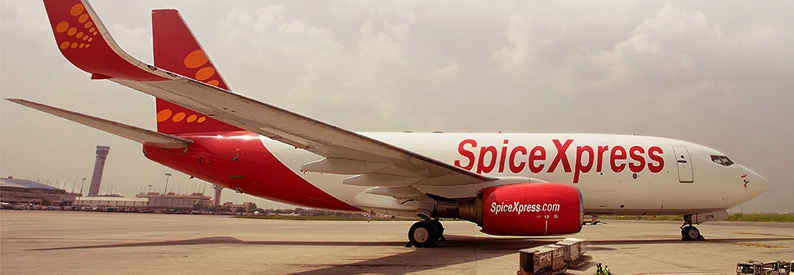India’s SpiceJet confirms it will separate cargo “lifeline”

SpiceJet (SG, Delhi Int’l) plans to “hive-off the cargo business to operate as a separate entity,” in the words of chairman and managing director Ajay Singh, as a means of raising capital and bolstering the company’s shaky balance sheet.
The comments appear to confirm reports earlier this year that shareholders had agreed to separate SpiceXpress, its cargo arm, by placing it in a wholly-owned subsidiary.
On June 30, the low-cost carrier posted a net loss of INR2.35 billion rupees (USD31.6 million) for its fourth quarter ending March 31, lower than the INR8.07 billion (USD109 million) loss it experienced a year ago but more severe than expected due to India’s devastating second wave of Covid-19. The net loss for the fiscal year was INR9.98 billion (USD134 million).
But while the losses have been significant on the passenger side, cargo operations have “continued to provide a much-required lifeline to our overall operations,” the airline said in a statement, with cargo revenue rising 518% and bringing a full-year profit for this part of the company to INR1.31 billion (USD17.6 million) against an INR1.34 billion (USD18 million) loss the previous year.
The airline carried 39,693 tonnes of cargo during the quarter, down 3.8% on a sequential basis, but resulting in quarterly revenue of INR4.16 billion (USD56 million).
According to the ch-aviation fleets advanced module, SpiceJet currently operates three B737-700(BDSF)s and two B737-800(BCF)s. It also deploys seven DHC-8-Q400s as makeshift freighters, in addition to wet-leasing an A340-300 from Hi Fly Malta (HFM, Malta Int’l) for its cargo operations.
“The intensity with which the second wave of Covid-19 struck and the unimaginable devastation it has caused, both for the already battered travel industry and generally, will take time to heal. To ensure our long-term growth and sustainable operation we have decided to raise funds of up to INR25 billion [USD337 million]. These funds will be used to significantly strengthen our balance sheet,” Singh said in the statement.
“Much like the first wave, this time, too, our cargo arm was exceptionally active […]. In order to provide greater focus to the cargo business and raise additional capital, we will hive off the cargo business to operate as a separate entity. This will provide greater opportunity and flexibility in pursuing our long-term growth plan and strategies for the cargo business.”
